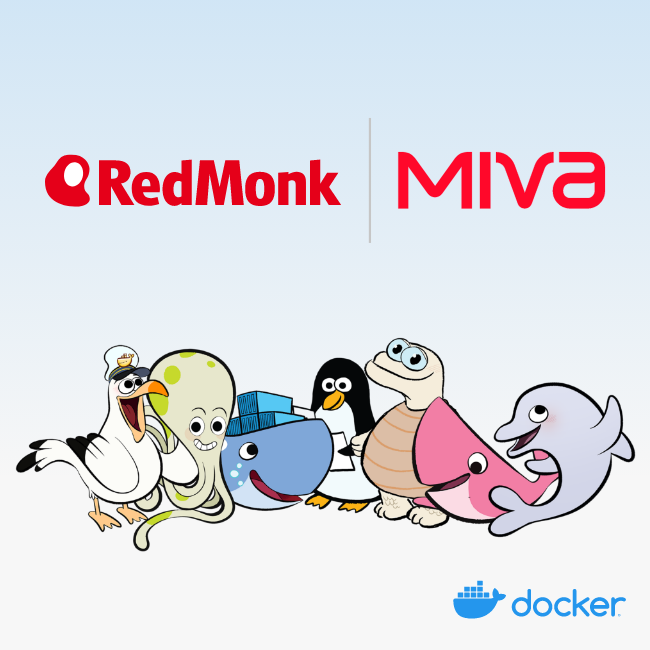- I recommend the Pixel 9 to most people looking to upgrade - especially while it's $250 off
- Google's viral research assistant just got its own app - here's how it can help you
- Sony will give you a free 55-inch 4K TV right now - but this is the last day to qualify
- I've used virtually every Linux distro, but this one has a fresh perspective
- The 7 gadgets I never travel without (and why they make such a big difference)
Developer Engagement in the Remote Work Era – Docker

With the rise of remote-first and hybrid work models in the tech world, promoting developer engagement has become more important than ever. Maintaining a culture of engagement, productivity, and collaboration can be a hurdle for businesses making this new shift to remote work. But it’s far from impossible.
As a fully-remote, developer-focused company, Docker was thrilled to join in a like-minded conversation with RedMonk and Miva. Jake Levirne (Head of Product at Docker) was joined by Jon Burchmore (CTO at Miva) for a talk led by RedMonk’s Sr. Analyst Rachel Stephens. In this webinar on developer engagement in the remote work era, these industry specialists discuss navigating developer engagement with a focus on productivity, collaboration, and much more.
Navigating developer engagement
Companies with newly-distributed work environments often struggle to create an engaging culture for their employees. This remains especially true for the developer workforce. Because of this, developer engagement has become a priority for more organizations than ever, including Miva.
“We actually brought [developer engagement] up as a part of our developer roadmap. As we were talking about ‘this is our product roadmap for 2022 — what’s the biggest challenge?’, my answer was ‘keeping people engaged so that we can keep productivity high.’”
Jon Burchmore
Like Miva, other organizations are starting to incorporate developer engagement into their broader business decisions. Teams are intentionally choosing tools and processes that support not only development requirements but also involvement and preference. By taking a look at productivity and collaboration, we can see the impact of these decisions.
Measuring developer productivity and collaboration
As both an art and a science, measuring developer productivity and collaboration can be difficult. While metrics can be informative, Jon is most interested in seeing the qualitative impact.
“How much is the team engaging with itself […] and is that engagement bottom up […] or from peer-to-peer? And a healthy team to me feels like a team where the peers are engaging as well. It’s not everyone just going upstream to get their problems solved.”
Jon Burchmore
As Jake adds, it’s more than just tracking lines of code. It’s about focusing on the outcomes. While developer engagement can be difficult to measure, the message is clear. Engaged developers are non-negotiable for high-performing teams.
Approaching developer collaboration
Developer collaboration is another linchpin for building developer engagement. Teams are now challenging themselves to find more opportunities for pair programming or similar types of coworking. Healthy collaboration should also not be limited to single teams.
“When you unlock collaboration both within teams and across teams, I think that’s what allows you to build what effectively are the increasingly complex real-world applications that are needed to keep creating business value.”
Jake Levirne
Organizations are taking a more holistic, inter-team perspective to avoid the dreaded, siloed productivity approach.
Watch the full, on-demand webinar
These points are just a snapshot of our talk with RedMonk and Miva on the challenges of developer engagement in the remote work era. Hear the rest of the discussion and more detail by watching the full conversation on demand.

